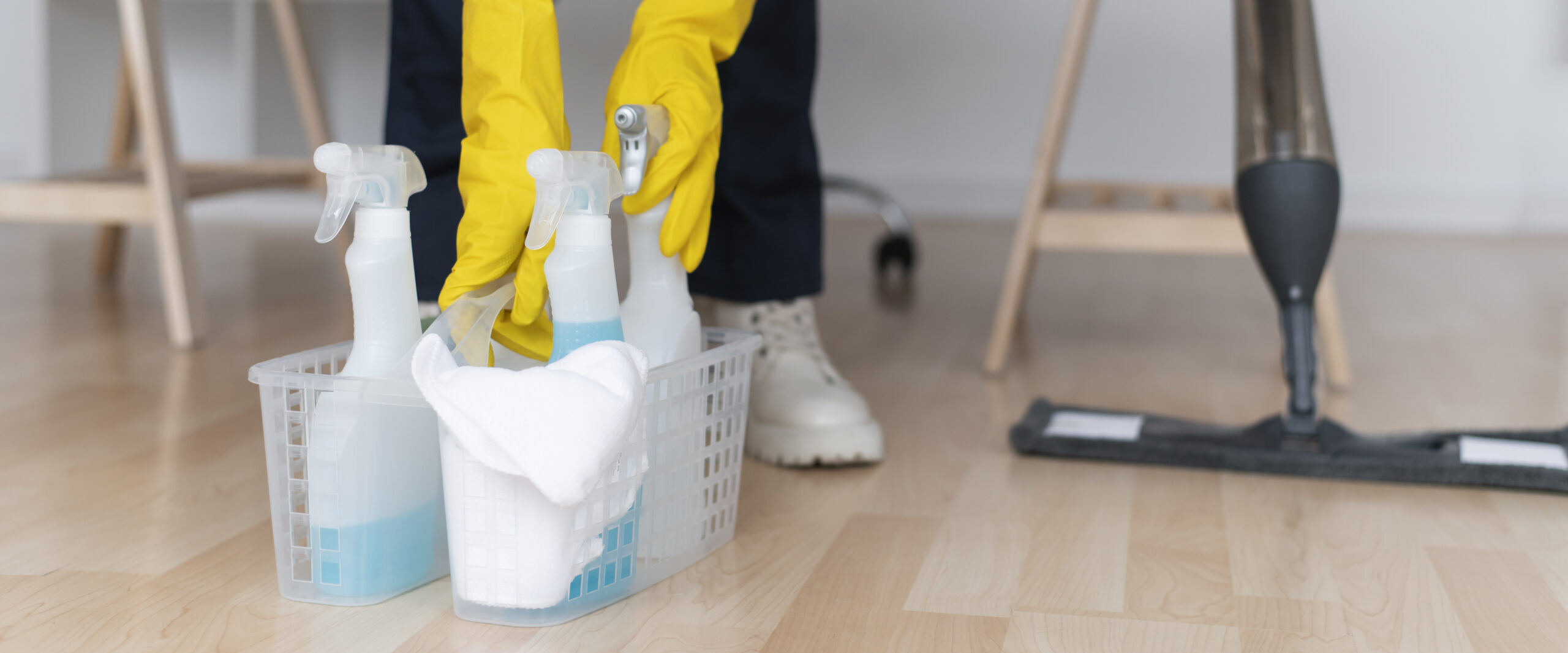In recent years, and particularly in the wake of global health concerns, the importance of maintaining a clean and disinfected environment has become more evident than ever.
Disinfection plays a pivotal role in both home and office cleaning, serving as a crucial measure to safeguard health and well-being. In this article, we will explore the significance of disinfection in creating and maintaining a healthy living and working space.
1. Protection Against Pathogens:
Disinfection is the frontline defense against harmful pathogens, including bacteria, viruses, and fungi. In both home and office settings, surfaces and high-touch areas can become breeding grounds for these microorganisms. Regular disinfection helps eliminate or reduce their presence, minimizing the risk of infections and illnesses.
2. Preventing the Spread of Infectious Diseases:
In crowded spaces like offices and homes, the potential for the spread of infectious diseases is significant. Disinfecting commonly touched surfaces, such as doorknobs, light switches, and shared electronics, helps break the chain of transmission. This is particularly crucial in preventing the spread of contagious illnesses, including the common cold and flu.
3. Addressing Public Health Concerns:
The emergence of global health concerns, such as the COVID-19 pandemic, has heightened awareness regarding the importance of disinfection. Regular and thorough disinfection practices have become integral in mitigating the risk of infection in shared spaces, providing a sense of security for individuals in both home and office environments.
4. Enhancing Workplace Productivity:
In office settings, a healthy and sanitized environment contributes to improved employee well-being and, consequently, increased productivity. When employees feel confident that their workspace is regularly disinfected, they are more likely to focus on their tasks without the distraction of health concerns.
5. Protecting Vulnerable Populations:
In homes and offices, there are often individuals who may be more vulnerable to illnesses, such as the elderly or those with underlying health conditions. Maintaining a disinfected environment is crucial in protecting these vulnerable populations from potential health risks.
6. Reducing Allergens and Irritants:
Disinfection goes beyond targeting pathogens; it also helps reduce allergens and irritants. Regular cleaning and disinfection can eliminate dust mites, mold, and other allergens that can trigger respiratory issues, allergies, or asthma, providing a healthier indoor air quality.
7. Compliance with Health and Safety Standards:
Adhering to health and safety standards is essential for both homes and offices. Disinfection practices play a key role in meeting these standards, ensuring that the environment complies with regulations and guidelines aimed at safeguarding public health.
8. Creating a Sense of Security:
In uncertain times, a clean and disinfected environment creates a sense of security for occupants. Knowing that surfaces are regularly treated and sanitized contributes to a feeling of comfort and confidence, whether at home or in the workplace.
9. Preserving Long-Term Health:
The long-term health of individuals is directly linked to the cleanliness and safety of their living and working environments. Consistent disinfection practices contribute to the prevention of illnesses and support overall well-being, fostering a healthier community.
10. Instilling a Culture of Cleanliness:
Regular disinfection efforts contribute to the establishment of a culture of cleanliness. In both homes and offices, when individuals observe and experience the benefits of a disinfected environment, they are more likely to adopt and maintain cleanliness practices, creating a positive and health-conscious atmosphere.
Conclusion:
Disinfection is a fundamental aspect of home and office cleaning, especially in the context of recent public health concerns. Beyond the visible cleanliness of surfaces, the role of disinfection is to create a safe and healthy environment, protecting against pathogens and preventing the spread of infectious diseases. Whether in the home or workplace, a commitment to regular disinfection not only addresses immediate health concerns but also fosters a culture of cleanliness that contributes to long-term well-being. By prioritizing disinfection practices, individuals can play an active role in creating environments that support health, safety, and peace of mind.

